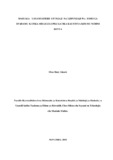Please use this identifier to cite or link to this item:
http://ir-library.mmust.ac.ke:8080/xmlui/handle/123456789/2608Full metadata record
| DC Field | Value | Language |
|---|---|---|
| dc.contributor.author | Aluoch, Oloo Mary | - |
| dc.date.accessioned | 2024-01-22T09:59:47Z | - |
| dc.date.available | 2024-01-22T09:59:47Z | - |
| dc.date.issued | 2018-11 | - |
| dc.identifier.uri | http://ir-library.mmust.ac.ke:8080/xmlui/handle/123456789/2608 | - |
| dc.description | Uzamili katika Taaluma ya Elimu ya Kiswahili | en_US |
| dc.description.abstract | Comprehension is one of the several compulsory sections in Kiswahili subject syllabus. For a student to perform well in Kiswahili exams, he or she has to do well in this section. Unfortunately, this is one of the most poorly performed section in Kiswahili. This study therefore sought to investigate the factors that affect the teaching and learning of Kiswahili reading comprehension in Secondary schools in Kisumu West sub county in Kenya. The objectives of this study were: To investigate the teaching strategies that the Kiswahili comprehension teachers use to teach Kiswahili reading comprehension; To assess the availability and use of learning and teaching aids by teachers in teaching Kiswahili reading comprehension;To find out whether Kiswahili teachers adequately prepared before going to teach Kiswahili reading comprehension lessons and, To investigate about teachers and learners‟opinions towards the teaching and learning of Kiswahili reading comprehension.This study was guided by the behaviourism theory by Hull (1943) which was reinforced by Skinner (1957), (Deodutus 2015) This theory states that learning reflects the development of an S-R (stimulus-response) association. The research used descriptive survey design. The target population included all form three teachers of Kiswahili reading comprehension together with their Kiswahili students. Stratified sampling was used to select a representative sample of schools while simple random sampling was used to select teachers of Kiswahili and students.The research was carried out in 11 secondary schools, among 18 form three teachers of Kiswahili and 180 students which represented 30% of the total population. Data was analyzed using descriptive statistics. Data was presented using, tables, graphs and charts. Discussion of the findings of the research was guided by research questions. The findings of the data analysis showed that there were challenges in the teaching and learning of Kiswahili reading comprehension. The findings indicated that poor preparation by teachers in their teaching content, inappropriate teaching methodologies used by Kiwahili teachers, neglect of the use of relevant teaching materials and teaching aids and negative attitudes by teachers and students towards Kiswahili reading comprehension are the factors affecting the teaching and learning of comprehension. Based on the finding, it is recommended that the Kenya Institute of Curricullum Development should organize seminars and workshops for teachers of Kiswahili on the relevant topics and methods of teaching Kiswahili comprehension. The importance of this research is that, the findings are useful in teaching and learning of Kiswahili comprehension in Secondary schools not only in Kisumu West Sub-County, but also in other pats of Kenya and other places where Kiswahili comprehension is taught. The teachers will be able to understand the best instructional strategies for teaching reading comprehension. The learners will also get the required skills to read and answer comprehension questions correctly. | en_US |
| dc.publisher | MMUST | en_US |
| dc.subject | UFUNZAJI, UJIFUNZAJI, UFAHAMU, SHULE ZA UPILI | en_US |
| dc.title | MASUALA YANAYOATHIRI UFUNZAJI NA UJIFUNZAJI WA SOMO LA UFAHAMU KATIKA SHULE ZA UPILI KATIKA KAUNTI YA KISUMU NCHINI KENYA | en_US |
| dc.type | Thesis | en_US |
| Appears in Collections: | School of Education | |
Files in This Item:
| File | Description | Size | Format | |
|---|---|---|---|---|
| MASUALA YANAYOATHIRI UFUNZAJI NA UJIFUNZAJI WA SOMO LA.pdf | Masters Degree | 5.36 MB | Adobe PDF |  View/Open |
Items in DSpace are protected by copyright, with all rights reserved, unless otherwise indicated.
